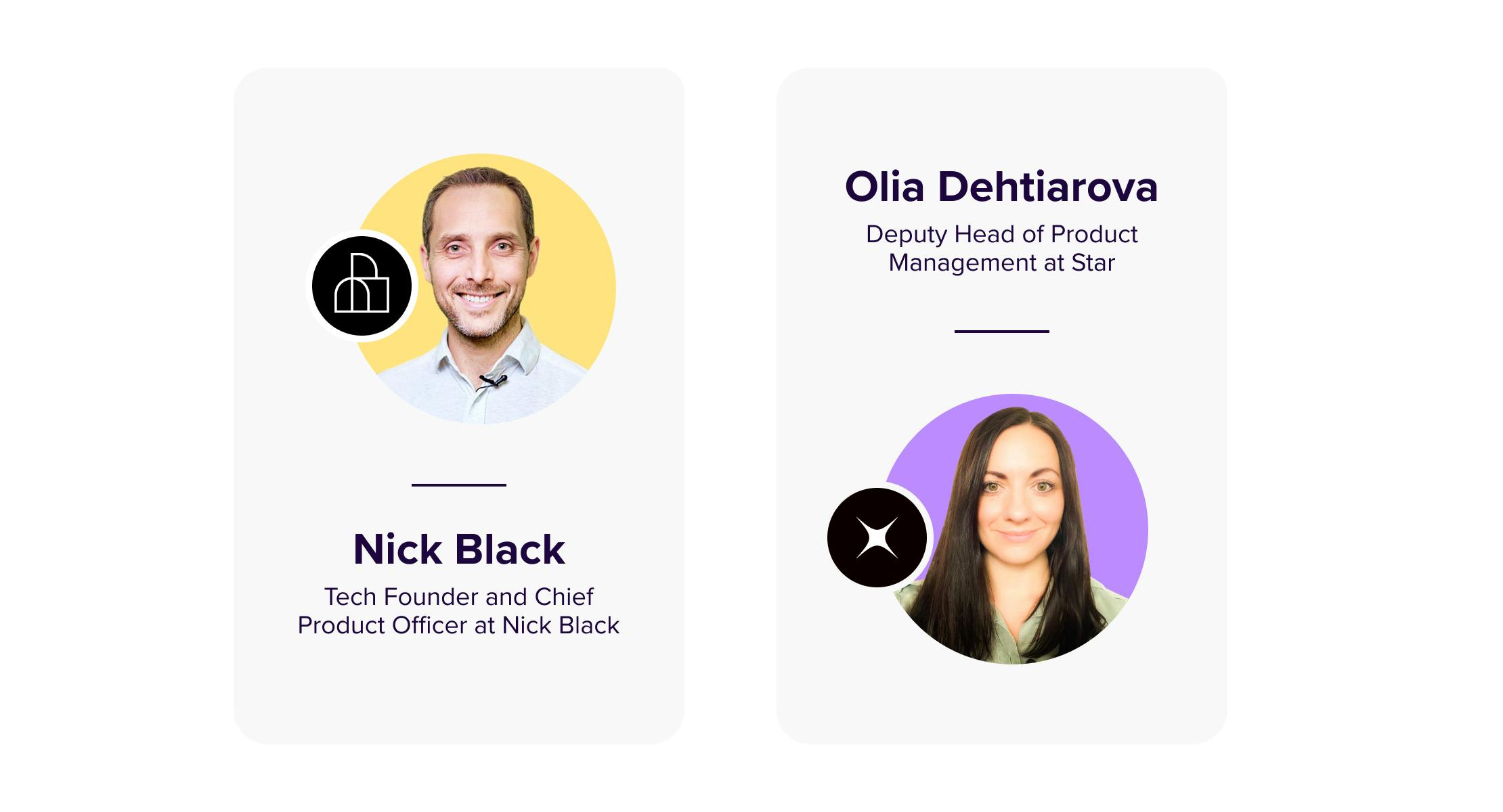
As businesses of all stripes grow increasingly solution-driven, the role of product management will only continue to increase in scope and importance. So on this episode of Shine: a podcast by Star, we’re diving deep into product management.
As an end-to-end IT consultancy, product managers play a crucial role in helping our clients across HealthTech, FinTech, Automotive & Mobility and every industry we serve deliver groundbreaking products that accelerate growth and define their brand.
What are the qualities of an excellent product manager? What types of questions should companies be asking during an interview? And if you’re an aspiring product manager on the job hunt, what are some things you can do to stand out?
Find out this and so much more by listening to this episode.
Finding the right product manager starts with your company’s milestone
Every company is structured around milestones. That’s why Nick Black, Tech Founder and Chief Product Officer, opens the dialogue with every business he works with around a few key questions. What do we need to achieve next? Are we trying to launch our product? Are we trying to go from our first 10 users to finding product-market fit? Or are we trying to scale globally? By having a strong understanding of the milestone you’re targeting, you’ll be able to take the first step in finding what product manager you need.
Olia as a Deputy Head of Product Management at Star extends this by offering her perspective, “Regardless of whether you’re looking for an internal or external partner, flexibility and cross-domain experience are essential.” That’s because product management is such a holistic role, and this leader must be able to see the big picture and help translate it to the team.
Subscribe on Apple Podcast | Subscribe on Spotify
Product owner vs. product manager: who do you hire first?
These two terms can sound pretty similar to the untrained ear, but it’s important to distinguish them, especially when working with enterprises. With the Agile approach and especially a Scrum project management methodology, a product owner is “the person managing the backlog and tasks and mostly works with the delivery team,” as Olia describes.
This is where terminology can be confusing because with the word “owner,” you might think this means somebody who’s making major decisions or owning product strategy — which isn’t the case in Scrum. These tasks and much more are done by the product manager.
As Nick explains, “The whole point of product management is that you align the problems you’re trying to solve, grow the business and engage users.”
He illustrates this distinction and why it’s especially important for startups by saying, “If you’re a founder who’s been in the industry for 15 years, have a Ph.D. in the area, know about product management and love coaching and developing people, then you can create a model based around having junior product managers and growing them.”
On the other hand, a product owner is a new role that emerged only in the past 10-20 years in Europe. Enterprises wanted to model their approach based on Silicon Valley-style technical product management, but they weren’t ready to hand over the keys to the business. Instead, they “created what the stakeholders and businesses needed, and the product owners would translate these into requirements to complete on the technical side,” Nick elaborates.
This leads to a critical inflection point for startups. While an enterprise may be large enough to separate these roles, anybody who’s ever worked for a startup knows you wear many hats. A founder who brings a product owner on board may often find themselves in a position where the product owner outgrows the role. The founder will need to either pay them more or give them more responsibility (usually both!).
Then, there will be excellent product owners and just that, and they might not be suited toward product management. As a founder, you have to pay attention to the two: to retain good talent and build a strong team.
This is where companies like Star can truly add value because we enable founders to utilize our project teams to help achieve their goals and fill critical talent gaps. For example, they might need a fully independent project team or a product owner and talented engineers. Either way, we can help them work toward their North Star goal.
How do you structure an effective product team?
Startup. Enterprise. Internal or external approach. Nick sees that teams at every company need competence, autonomy and relatedness. As such, there are three key members every team must have:
- Product manager: the owner of the strategy and the entire vision. Your key liaison between a product, a customer and an end-user.
- Tech lead: “emissary for your engineers.” They’ll be able to tell you something like, “well, we could take x approach and deliver a new feature in a few months, but if we did y, we could get that down to a few weeks.
- Product designer: this is more than a UX designer, but somebody who can get into the heads of customers, build value propositions and design ideas.
Above all, though, this needs to be a close-knit team that acts as one. If you’re able to do that, then you’ll be able to craft something truly special.
What makes a world-class product manager?
Whether you’re managing an enterprise of 8,000 people, getting a startup off the ground, in product management now or looking to get into it, a handful of distinguishing features set apart truly great product managers.
Olia describes how the best are driven by empathy, caring and wanting to answer the questions “why?”. This applies even during the interview process. By understanding why certain decisions were made around a product in their past experiences, you can learn a lot about a candidate.
Nick details this principle of anchoring and how “people love telling stories and just naturally make stuff up and create false memories. But, if you really try to anchor people onto a specific thing at a specific time, such as when you scale a product globally and then ask them the questions you can get really useful information from them.” This along with simulated workshops can provide you with insights into how people really work and if they’re the right fit for your business.
Explore more product management strategies in the podcast
The conversation among these two product management experts gets deeper in the complete podcast. They give even more product development strategies into hiring product managers and understanding what companies need at different stages.
Listen to the full episode and if you’re interested in becoming a Star Product Manager, check out one of our many open positions. This is your opportunity to work alongside world-class clients like BMW, ZEISS, Nio, Panasonic, as well as disruptive startups looking to chart their next iconic move.









